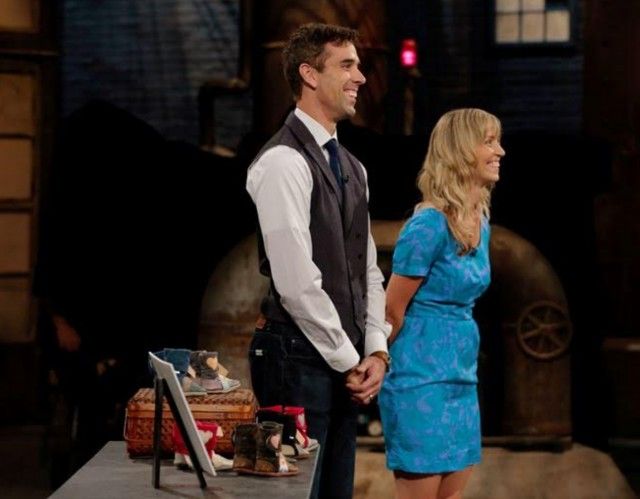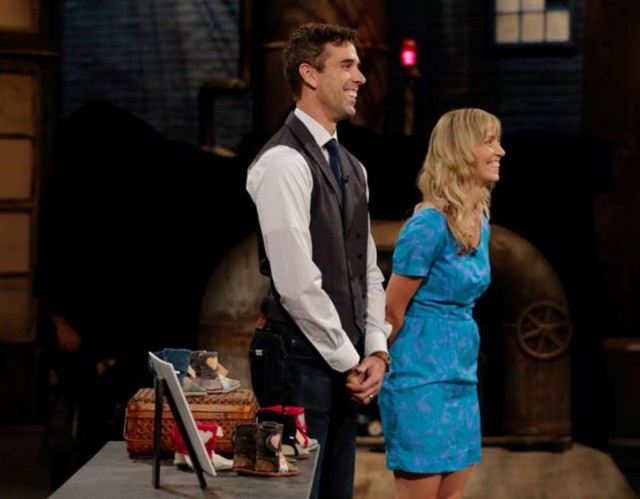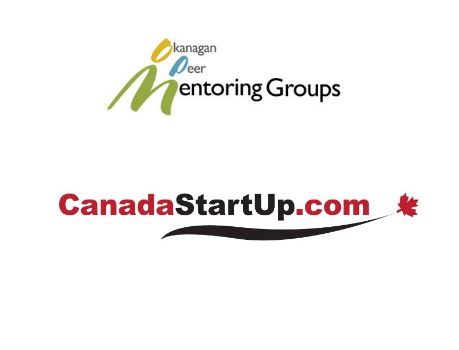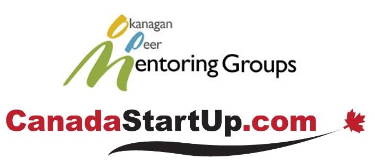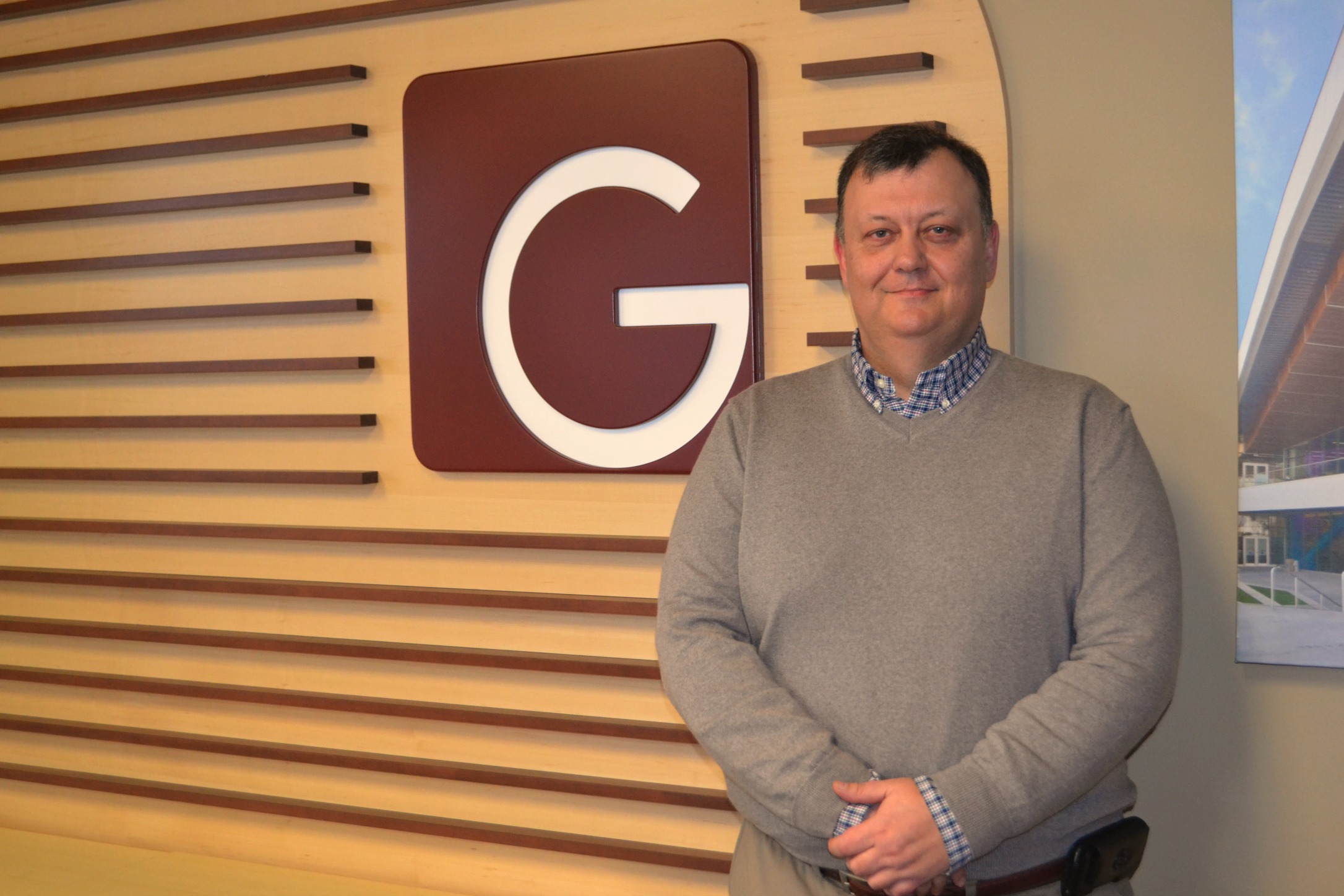
Trevor Nichols - 11:30 am - Biz Profiles, https://okanaganedge.net/2017/02/20/really-good-wood/
In a nondescript, industrial building in West Kelowna a pair of immigrants have built an internationally recognized company.
Geometrik Owners Vladimir and Natasha Bolshakov might not be that well known in the Okanagan “but whomever is involved in commercial construction, they are very much aware of the Geometric brand,” Vladimir says.
Sitting at a board table with his back straight and his hands folded, Vladamir is imposing but not threatening.
He and his wife Natasha immigrated to Canada in the early 2000s and his speech is still coloured by a Russian accent.
When the couple bought Geometrik in 2006 it was a small company making children’s furniture – but they knew exactly where they wanted to take it.
They both had years of experience manufacturing wood acoustic panelling, and they set about creating a brand new product.
“Me and my business partner, my best friend and my wife, we worked together in this industry since our graduation from university,” Valdamir says. “It’s now going to be 26 years since we got sucked into the manufacturing of wood acoustical ceilings and walls. All our life is here, it’s just that.”
Acoustic panelling is used in large spaces like hallways and auditoriums to dampen sound and create a more pleasant acoustic environment.
There are scores of products that can do that, but Vladamir says Geometrik’s wooden panelling is more “aesthetically intense,” appealing in buildings that want to “wow” visitors.
Starting out with just three employees, Vladimir and Natasha now employ about 30, and their product is used all over the world.
One of the big reasons for their success, Vladimir says, is the Okanagan’s unique climate, which is ideal for woodworking.
“I would probably have a hard time finding a place that’s better for woodworking industries,” he says, pointing to the regions ideal temperature and humidify, which allow them to work easily with climate-sensitive wood.
The crazy part, Vladamir admits, is that they weren’t even aware of that when they came here. Their decision to stay was based on the beauty of the region.
“We just arrived and it was a total wow effect,” he says.“It takes probably about 10 seconds to make the decision we are staying.”
Now, Vladamir says, the products from the business they built are all over the region, the country and the world.
But of everywhere Geometrik panels are found, Vladamir says Toronto’s Pearson International Airport is the most meaningful to him.
“This is our first step in Canada,” he says. He leans forward slightly and opens his hands. A smile creeps onto his face. “This is where we immigrated and now we are happy to provide them with acoustical ceilings, so it’s very emotional.”
He leans back, his smile widening.
“This is where we came, just hopeful for the future, hopeful for the product … and this is us now.”
“This is the beauty of our business. It’s not just a block of wood with a bunch of holes, there’s a storyline for almost everybody,” he says.
“We kind of hoped that we could make it when we left our shores and made it over here, and I think we are the proof that if somebody believes hard and works hard it is possible. Anything is possible, especially in Canada.”
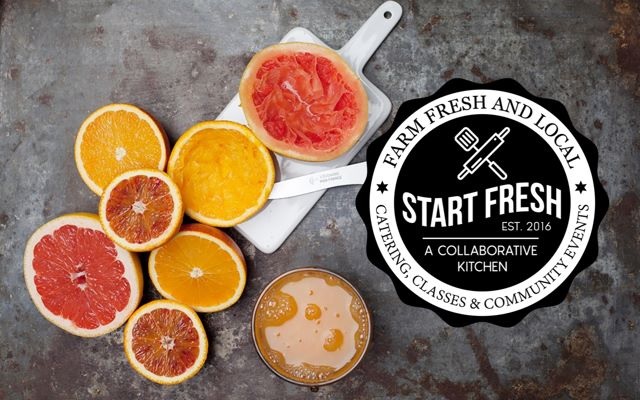
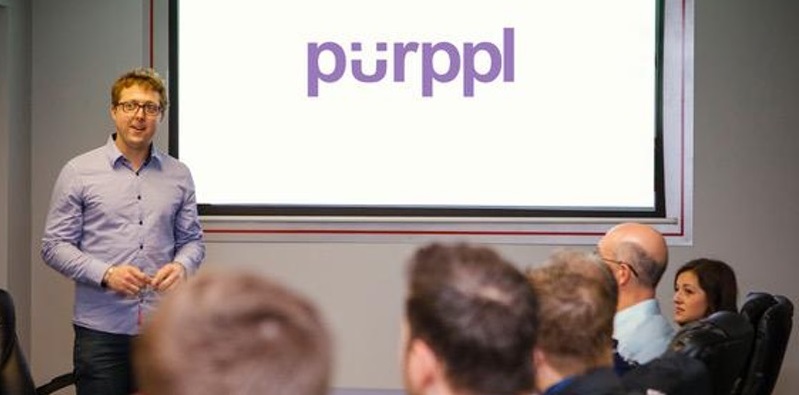
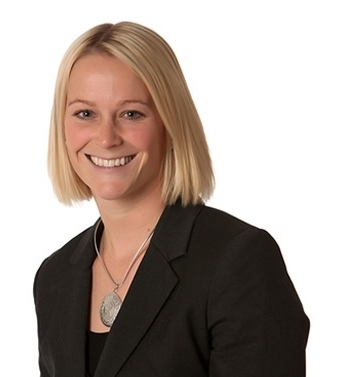 To celebrate and recognize volunteers, Community Futures Central Okanagan is pleased to announce that Una Gabie has been awarded Community Futures Volunteer of the Year. Congratulations Una!
To celebrate and recognize volunteers, Community Futures Central Okanagan is pleased to announce that Una Gabie has been awarded Community Futures Volunteer of the Year. Congratulations Una!
